
In a bold move towards economic independence and cultural revitalization, the Caddo Nation has launched Arrowood Kakinah Enterprise, a tribally owned construction company that intertwines deep-rooted Caddo traditions with modern business acumen. This initiative not only promises to boost the tribe's economic prospects but also serves as a beacon of cultural preservation and community empowerment.
The Power of a Name
The name "Arrowood Kakinah" is far more than a corporate title; it is a testament to the rich history and enduring spirit of the Caddo people. "Arrowwood," or "Bob Yoko" in the Caddo language, harkens back to a time when the Caddo were renowned as master bow makers, controlling the trade of Bois D'arc wood along the Red River.
Chairman Bobby Gonzalez elaborates on the historical significance: "The Caddos are bow makers, and part of our history is that we controlled the Bois D'arc by trade. At the time, it only grew in one place, which was the Red River, until the Spanish introduced horses. Then the horses consumed these horse apples that grow on the trees and as horses traveled, they began to spread this sacred tree all over." This control over the Bois D'arc trade was a cornerstone of Caddo economic power in pre-colonial times. The wood's strength and flexibility made it ideal for crafting bows, and the Caddo's expertise in this craft was widely recognized and considered expert shooters with bows. "Kakinah," meaning "to build something strong" in the Caddo language, completes the company's name. This dual meaning encapsulates the enterprise's mission: to construct robust physical structures while simultaneously building a strong economic foundation for the tribe's future.
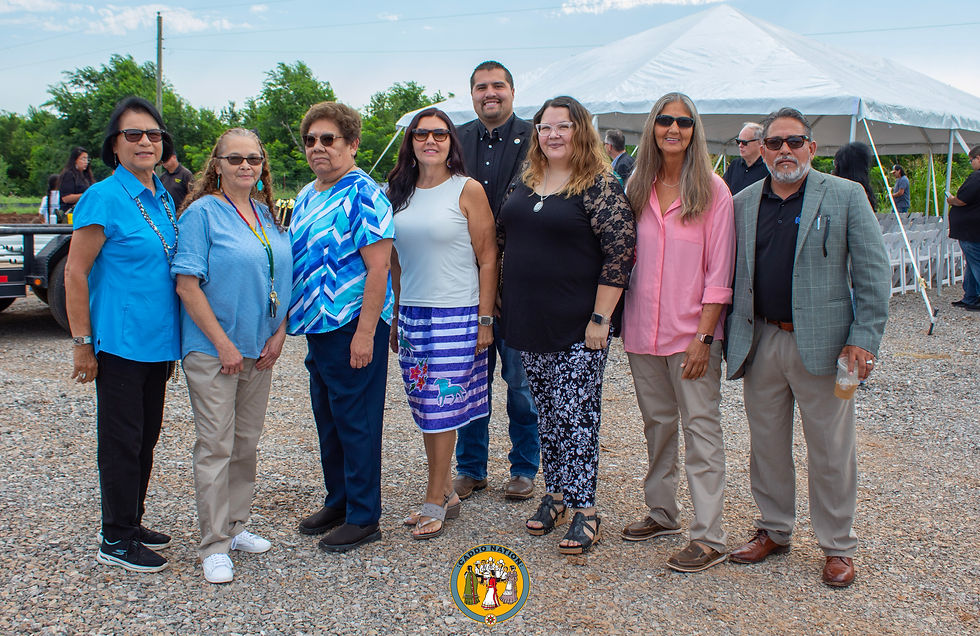
A Company Born of Necessity
Arrowood Kakinah Enterprise was not created on a whim, but out of a pressing need within the community. Arrowood was constructed out of need to help save Constuction cost dollars and turn as much as the financial rescores over internally within the tribe to save cost and to help spread construction dollars. This pragmatic approach to addressing community needs while honoring cultural heritage is at the heart of Arrowood Kakinah's mission. The company's first major undertaking exemplifies this dual purpose: the construction of a $10.5 million childcare and community center funded by a host of federal and state agencies through a competitive process.

Cultural Integration in Modern Design
The childcare and community center project is more than just a construction job; it is a canvas for cultural expression. Designed in collaboration with Mass Design Group, named Architect of the Year for 2023, the facility incorporates Caddo cultural elements throughout its architecture and landscaping.
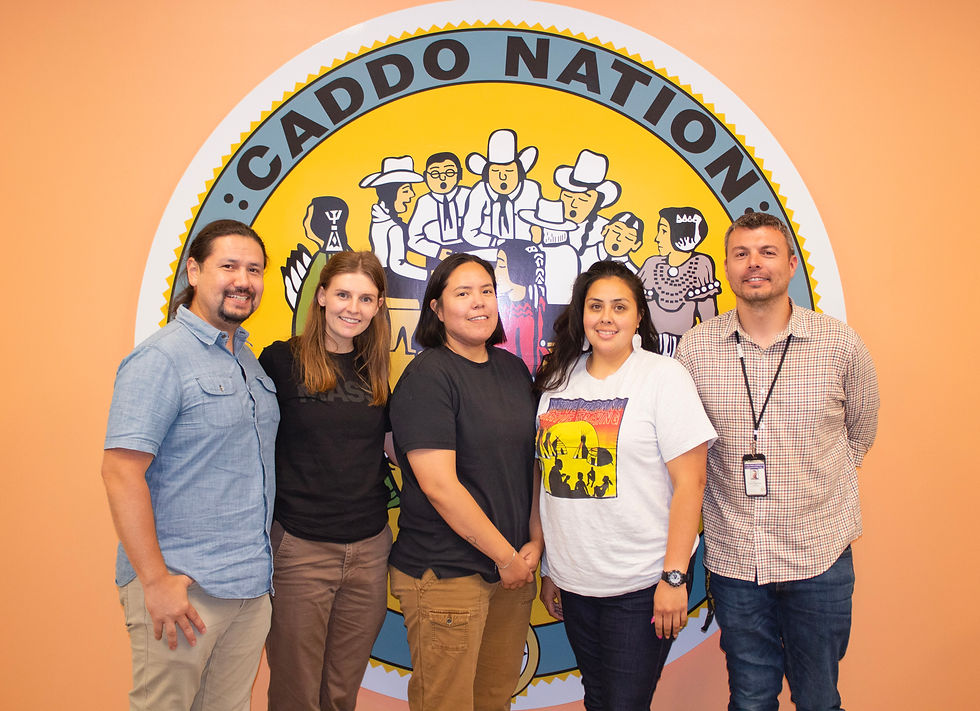
"The landscape is important," Chairman Gonzalez notes, "because the Caddo have always lived on the banks of water, and we need water to live so the idea was to get back to the basics of what it takes to survive. We must have water, heat and wood." The building's design considers traditional Caddo perspectives on the natural world, incorporating elements that align with the winter solstice and the four cardinal directions. It will feature an aquatic pool, a safe room, and a gymnasium, serving as a hub for community activities and cultural education.
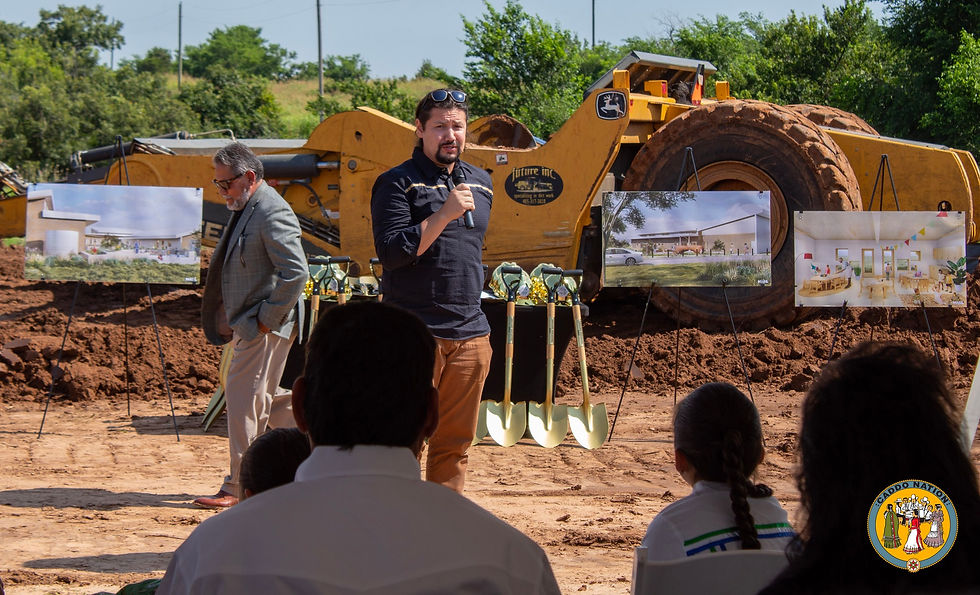
This approach to design reflects a deeper philosophy about the role of culture in community development. As Chairman Gonzalez puts it, "There's one thing that taught us during the pandemic: you cannot eat a machine at a gaming facility." By creating a space that honors Caddo traditions and meets contemporary community needs, Arrowood Kakinah is helping to ensure that cultural knowledge is passed on to future generations.
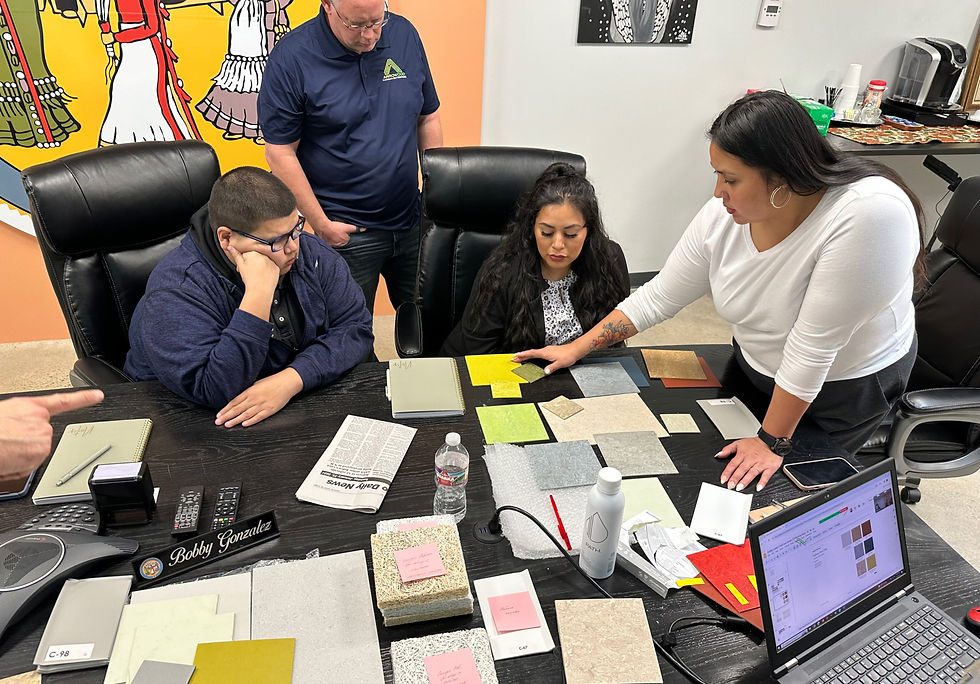
Above: Caddo Nation Child Care Director Lauryn French and team members Kourtney Quoetone and Mason Meeks review materials for Child Care Center.
Economic Empowerment Through Internal Investment
The creation of Arrowood Kakinah represents a strategic move to keep construction dollars within the tribe. Rather than contracting out to external companies and watching those funds leave the community, the tribe can now recycle these investments internally. This approach not only builds the tribe's economic capacity but also creates jobs and training opportunities for tribal members.
The impact of this strategy became quickly apparent. In its first year of operation, Arrowood Kakinah achieved a remarkable feat: securing a $3.4 million road project and getting the project bonded for a federal highway project just four months after its inception. "Usually, when a business starts, they lose money in the first year by just investing. Arrowood had a $3.4 million bond on a federal highway project four months after it existed.” unheard of within the corporate world, let alone a small tribe in southwestern Oklahoma. This project and the renovation of Cummins Road showcase the company's ability to work with multiple stakeholders, including county commissioners, the Bureau of Indian Affairs (BIA), and neighboring tribes like the Wichita. The road project, split 50-50 with the Wichita tribe, demonstrates the potential for inter-tribal cooperation in infrastructure development.

Building Capacity, Creating Opportunity
Arrowood Kakinah's rapid success is not just about winning contracts; it is about building capacity within the tribe. The company has partnered with Connect Advisors to help manage projects and train Caddo members in various aspects of the construction industry.
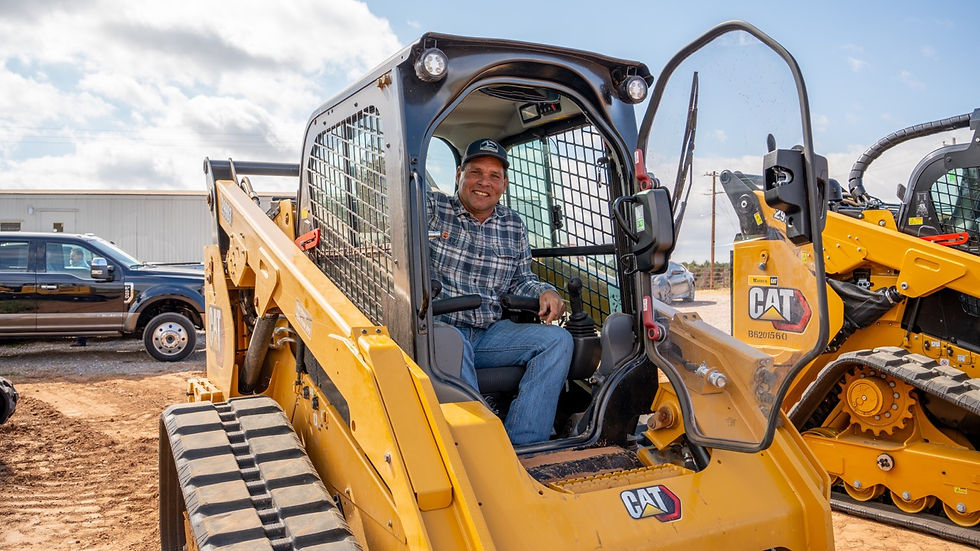
"We're training our own people," Chairman Gonzalez explains. "That management group is helping train our own individual Caddo members that are on the project how to manage and construct and build these kinds of projects out." This includes everything from managing subcontractors to handling permits and construction costs.
The company has already created several key positions filled by tribal members and experienced professionals. Brock Eubanks, with a master's degree in construction management, serves as the construction manager. Robert Palmer, a Caddo with over 40 years of experience in dirt work, is the plant superintendent. The team also includes Greg Trent, a concrete specialist, and Zach Keelan, a federal lawyer who serves as vice president of the Caddo Nation Economic Development Authority.

The Road to 8(a) Certification
Looking to the future, Arrowood Kakinah is pursuing 8(a) certification through the Small Business Administration. This certification would open significant opportunities for growth and economic development by allowing the company to compete for federal contracts.
Chairman Gonzalez outlines the potential impact: "Once that happens, we'll be able to contract directly with the federal government and on projects that they are building. Maybe they're building new barracks, new houses, or just government buildings. If Indian Health Services is letting out a bid to construct a new health services facility on Indian land or a reservation, because we'd be 8(a) certified, we would be provided notice."
This certification could be a game-changer for the tribe, potentially guaranteeing a minimum 20% share of certain government projects due to Arrowood Kakinah's status as a minority-owned, tribally owned business.

Revitalizing Infrastructure: The Transportation Department's Comeback
The establishment of Arrowood Kakinah coincides with another significant development: the revival of the Caddo Nation's Transportation Department after a 20-year hiatus. Through a 638 contract with the BIA, the tribe has secured $9.8 million in transportation funding for bridges and roads within the tribal jurisdiction. This resurrection began with a modest but crucial step. "We went after transportation dollars through the BIA, we got 2% planning dollars," Chairman Gonzalez recounts. "It's all federal, and we planned out a priority list of roads and bridges that we wanted to construct that benefited our members as a tribal government." From this initial $421,000 in planning funds, the tribe has leveraged its resources to secure nearly $10 million for infrastructure projects. This funding has enabled the prioritization and construction of crucial infrastructure projects, including road improvements around tribal headquarters and in areas where tribal members reside.
The impact of these improvements extends beyond mere convenience. Many of the roads being improved are school bus routes, directly affecting the safety of Caddo children. The tribe is also addressing long-standing issues, such as drainage problems in residential areas like Halfmoon Circle.
A Call to Action for Indian Country
As Arrowood Kakinah Enterprise continues to grow and establish itself in the construction industry, the Caddo Nation extends an invitation to all of Indian Country—Native tribes, corporations, and individuals—to partner with them on future projects. This call to action is not just about business; it's about strengthening inter-tribal connections and supporting Native-owned enterprises.
Chairman Gonzalez emphasizes the importance of collaboration within Indian Country: "We encourage our fellow tribes, Native-owned businesses, and individuals to consider Arrowood Kakinah for their construction needs. By working together, we can keep our resources within our communities and build a stronger, more resilient Indian Country."
The company's expertise in road construction and infrastructure development makes it an ideal partner for tribes looking to improve their transportation networks. With its recent success in securing and executing federal highway projects, Arrowood Kakinah is well-positioned to assist other tribes in navigating the complexities of such undertakings.
"Whether it's building community centers, improving roads, or tackling large-scale infrastructure projects, Arrowood Kakinah is ready to bring our expertise and cultural understanding to communities across Indian Country," says Brock Eubanks, the company's construction manager. "We're not just building structures; we're building relationships and strengthening the economic fabric of Native communities."
Tribes and Native organizations interested in partnering with Arrowood Kakinah are encouraged to reach out to the Caddo Nation Economic Development Authority for more information on potential collaborations and project opportunities.
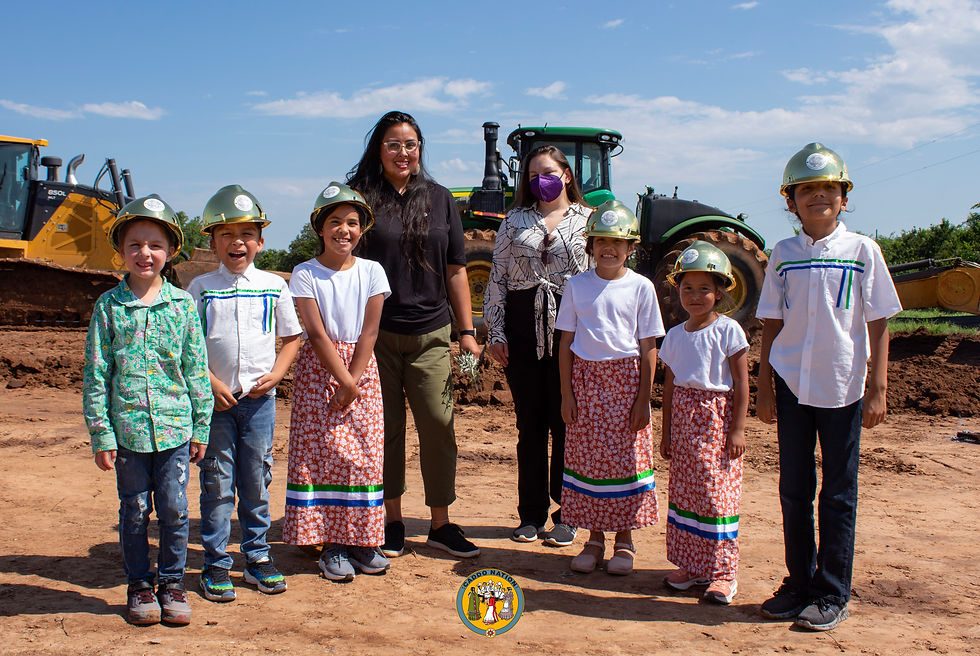
A Vision for the Future
As Arrowood Kakinah continues to grow, it symbolizes more than just a business venture. It represents the Caddo Nation's commitment to self-determination, cultural preservation, and economic prosperity. By blending traditional values with modern business practices, the Caddo are building a strong foundation for future generations.
Chairman Gonzalez sums up the holistic impact of these initiatives: "We're able to train our people, we're able to put our people to work. We're able to construct it ourselves, providing economic dollars to the community, bringing community wealth back into this community, as well as building compacity ourselves and paying our people. It's just a win-win all the way around."
From the culturally infused design of the new childcare center to the improved roads connecting Caddo communities, every project undertaken by Arrowood Kakinah is a step towards a more self-sufficient and culturally vibrant Caddo Nation. As the company grows and takes on more projects, it promises to be a driving force in the tribe's economic development, all while staying true to the meaning of its name – Arrowood Kakinah, building something strong for the Caddo people.

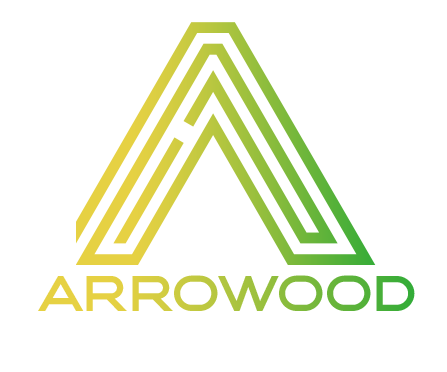
Comments